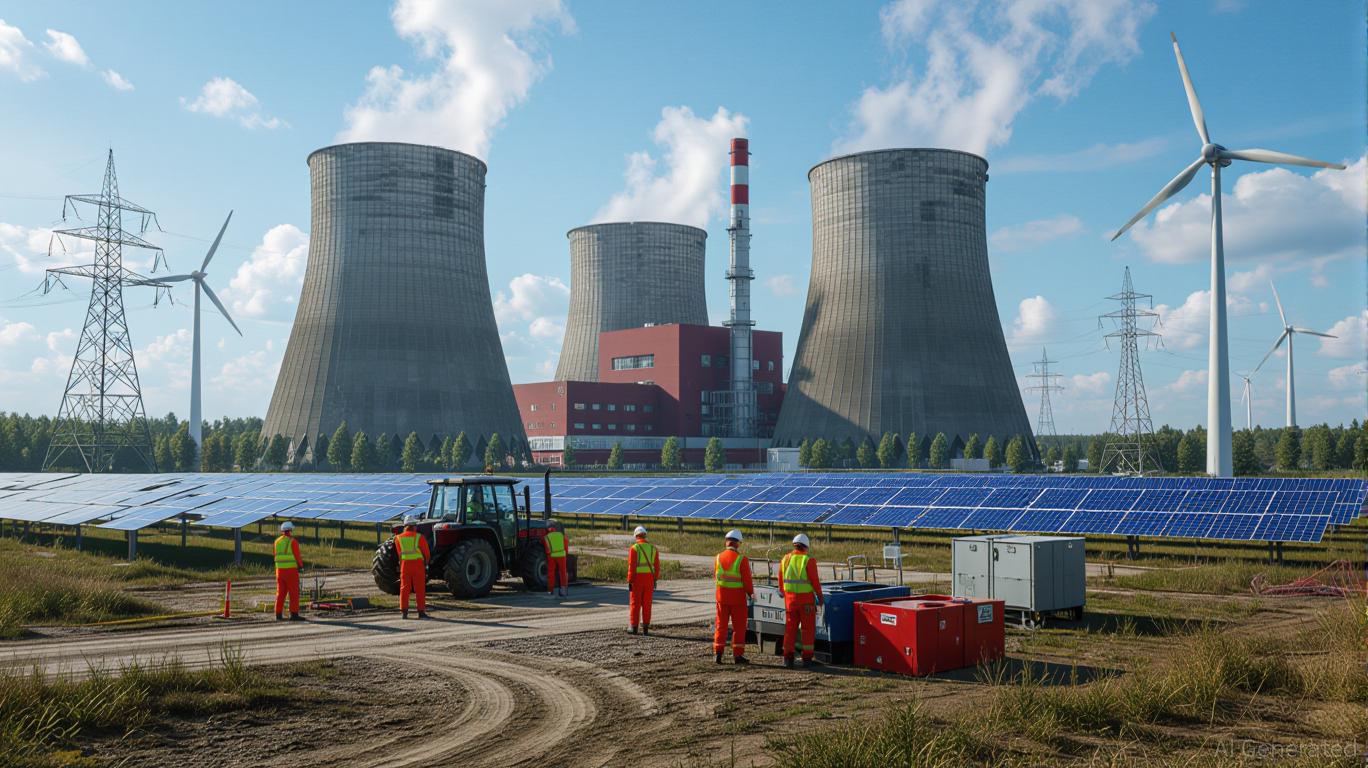The global energy landscape is undergoing a seismic shift, driven by the urgent need to decarbonize while meeting surging demand from AI, data centers, and electrified transportation. Germany, a nation historically at the forefront of energy policy, now stands at a crossroads. Its decision to phase out nuclear power by 2023 has left a void in its energy mix, but the decommissioning of 31 reactors has also created a unique set of strategic opportunities. These opportunities lie in the integration of renewable energy infrastructure, the repurposing of nuclear sites, and the management of radioactive waste—a sector poised for innovation and investment.

The Strategic Potential of Decommissioned Nuclear Sites
Germany’s nuclear decommissioning process, though politically driven, has preserved critical infrastructure that could be repurposed for renewable energy or even reactor restarts. The country’s reactors are categorized into four “Restart Classes,” with Brokdorf (Restart Class 1) potentially operational by late 2025 at a cost below €1 billion. Emsland and Grohnde (Restart Class 2) could follow by 2028, while Restart Class 3 reactors may require up to €3 billion but could be viable by 2032.
The existing infrastructure at these sites—grid transmission lines, cooling systems, and containment buildings—offers a foundation for rapid deployment of renewables. For instance, solar farms and wind turbines could be integrated into the vast land areas surrounding decommissioned reactors, leveraging pre-existing grid connections. This synergy between legacy infrastructure and renewable energy could reduce costs and accelerate Germany’s transition to a low-carbon economy.
Waste Management: A Hidden Goldmine
Germany’s nuclear waste management sector is a critical but underappreciated investment opportunity. The country has allocated €38 billion for decommissioning and waste management, with €1.4 billion earmarked in 2025 alone for temporary and final storage of radioactive waste. This includes €860 million for identifying a deep geological repository and €535 million for interim storage.
The challenge of managing 11,000 tonnes of spent nuclear fuel is not insurmountable. Countries like Finland and Sweden are advancing deep geological repositories, and Germany could follow suit. Private-sector involvement in waste reprocessing—such as converting spent fuel into mixed oxide (MOX) fuel—could unlock new revenue streams. Companies with expertise in nuclear waste logistics, such as Siemens Energy or international partners like Areva, may benefit from Germany’s need to modernize its waste infrastructure.
Renewable Integration: Bridging the Baseload Gap
Germany’s reliance on intermittent renewables has exposed vulnerabilities in its energy system. The closure of nuclear reactors has led to a 0.2% GDP contraction and a 25 TWh electricity import surge in 2024. Restarting even a fraction of its reactors could stabilize the grid and reduce dependence on fossil fuels or imported power.
A 20-year Power Purchase Agreement (PPA) model, akin to Microsoft’s partnership with Constellation Energy for Three Mile Island, could generate €100 billion in revenue for Germany’s reactors. At €100/MWh, nine restartable reactors could yield €10 billion annually, offsetting decommissioning costs and creating a sustainable revenue stream. This model aligns with Germany’s climate goals while addressing energy security concerns.
Political and Public Will: The Final Hurdle
Public opinion is shifting. A 2023 survey found 67% of Germans support nuclear energy, with 42% favoring new plant construction. This growing acceptance, coupled with the economic benefits of reactor restarts, could drive legislative changes to the Atomic Energy Act. Investors should monitor political developments in the Bundestag, where consensus on energy security and climate goals may override ideological opposition.
Investment Recommendations
- Infrastructure Repurposing Firms: Companies like Siemens Energy and E.ON, which are already involved in decommissioning and renewable integration, are well-positioned to capitalize on Germany’s energy transition.
- Nuclear Waste Management: Firms specializing in reprocessing or deep geological repositories, such as Urenco (via its Gronau enrichment facility) or international partners like Orano, could see increased demand.
- Renewable Developers: Solar and wind firms with expertise in large-scale projects near decommissioned sites, such as NextEra Energy or local German developers, may benefit from accelerated deployment.
- Grid Operators: Transmission companies like 50Hertz or TenneT could profit from upgrading infrastructure to support both renewables and potential reactor restarts.
Germany’s nuclear dismantling is not the end of its energy story but a pivot point. By integrating renewables, repurposing infrastructure, and addressing waste management, the country can transform its energy transition into a model of resilience and innovation. For investors, the opportunities are clear: a blend of policy-driven growth, technological adaptation, and strategic foresight.
